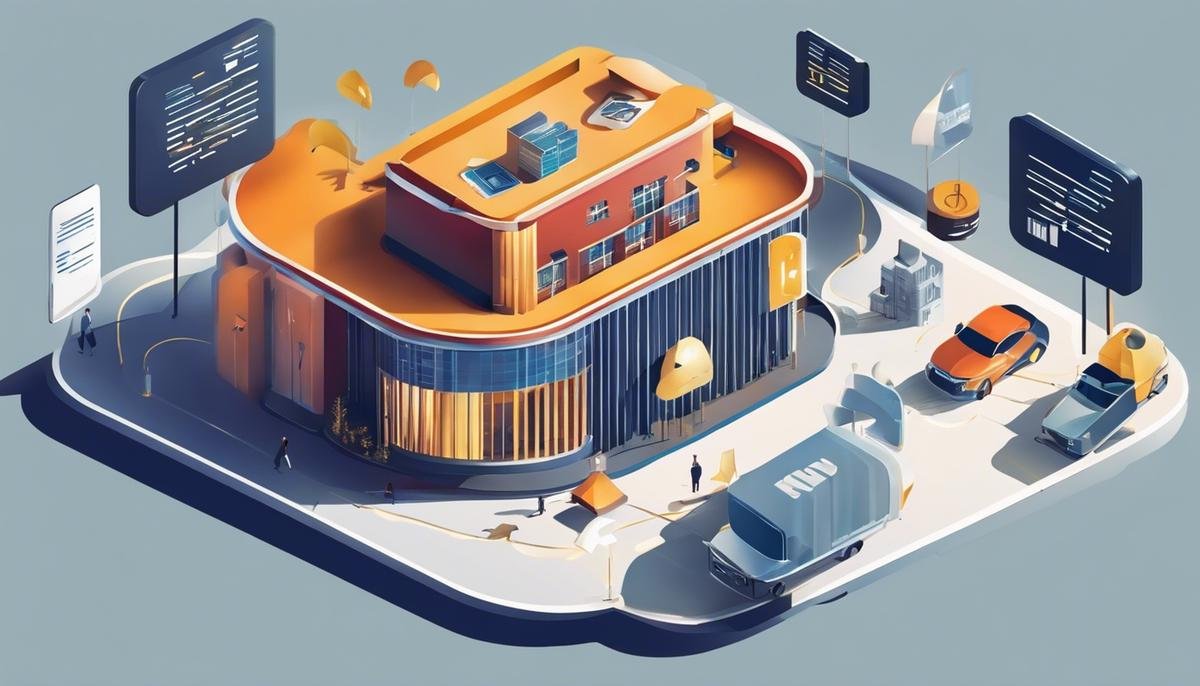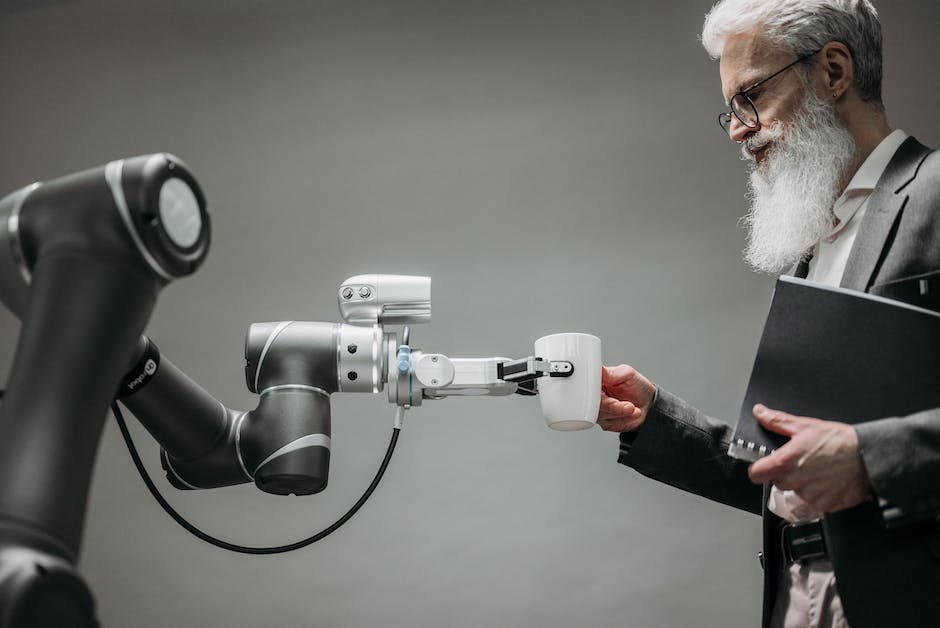As the sun rises on a new era of hospitality, the infusion of artificial intelligence into hotel operations is no longer a distant reverie but a tangible reality transforming the guest experience. Midjourney AI and similar technologies are at the forefront of this revolution, offering a suite of advanced capabilities from personalized services to sophisticated data analytics. Through AI chatbots that provide seamless customer service, to smart room automation catered to individual preferences, these innovations are not just enhancing the stay of each traveler—they’re redefining the entire landscape of modern hospitality. As we embark on this exploration, we’ll uncover how AI’s integration is reshaping hotels into bastions of efficiency, profitability, and unparalleled guest satisfaction.
The Role of AI in Modern Hospitality
Smart Stays: AI Revolutionizing Hotel Hospitality
Imagine walking into a hotel where the check-in process is a breeze, your room preference is remembered, and your needs are anticipated with precision. Welcome to the futuristic guest experience, where Artificial Intelligence (AI) is not just a buzzword—it’s reshaping the hospitality industry right before our eyes.
First up, AI-powered chatbots. They’re revolutionizing customer service by providing instant responses to guest inquiries, any time of day. No more waiting on the phone for a simple request. Need more towels? Dinner recommendations? A chatbot can handle that at lightning speed, letting staff focus on more complex tasks.
Room personalization is entering a new era with AI. Smart rooms equipped with voice-activated devices allow guests to control lights, temperature, and even TV channels by simply speaking. Remember that scene in a sci-fi movie where the room knows the character’s name and favorite music? That’s no longer just movie magic.
AI isn’t just about comfort; it’s getting serious about security too. Facial recognition technology is making key cards look like ancient relics. With a quick scan of a face, guests can enter their rooms or secured areas, making lost keys a thing of the past.
Data analysis via AI is like having a super-smart concierge that remembers every guest. Armed with data on past behaviors, hotels can tailor experiences down to the smallest detail—from room location to pillow firmness. Repeat guests feel like VIPs because the hotel “remembers” their preferences.
Even behind the scenes, AI does the heavy lifting. Energy management systems ensure that when a room is empty, it isn’t wasting electricity on full blast AC, aligning operational efficiency with environmental responsibility.
The transformative power of AI in hotels isn’t just a novelty—it’s quickly becoming the standard for a top-tier guest experience. The future isn’t just near; it’s unpacking its bags in the room next door. Welcome to the era of smart hospitality, where AI ensures your stay is nothing short of remarkable.

Operational Efficiency and Profitability
Maximizing Revenue and Streamlining Operations: The AI Revolution in Hotels
The hospitality industry is in the middle of an efficiency overhaul, thanks to artificial intelligence (AI). The power of AI extends far beyond simple customer service upgrades or the “cool factor” of high-tech rooms. Hotels are discovering that AI can be the key to unlocking higher profit margins and streamlining their entire operation.
One of the most significant impacts of AI in hotels is dynamic pricing. Algorithms analyze vast amounts of data, including room availability, market demand, competitor pricing, and even local events, to adjust room prices in real-time. This ensures that hotels can maximize revenue per available room (RevPAR), a critical metric in the hospitality industry.
Inventory management is another area ripe for AI infusion. Advanced systems predictively analyze stock levels for amenities, reducing waste and ensuring that supplies are ordered just in time. This avoids both overstocking and running out of essential items, which can save hotels substantial sums of money and enhance guest satisfaction.
AI is also a game-changer for predictive maintenance. Instead of waiting for systems to break down, AI tools can anticipate equipment failures before they happen. By analyzing patterns and the performance history of machines like HVAC units, hotels can perform maintenance only when needed, reducing downtime and saving on unnecessary repairs.
The hiring process is another beneficiary of AI’s analytical prowess. By sifting through applicant data and predicting the best fits for a position, AI cuts down on the time and resources spent on recruiting. It helps spot the most promising candidates, potentially reducing turnover and the costs associated with training new employees.
An often overlooked but crucial component of hotel operations is security. AI-powered surveillance systems are more adept at detecting suspicious behavior and potential threats without the fatigue or oversight that can occur with human monitoring. This not only ensures guest and staff safety but can also prevent losses due to theft or vandalism.
In the back office, AI systems help by automating routine tasks such as billing, expense management, and report generation. This frees up staff to focus on more complex, value-adding activities, boosting productivity and potentially reducing labor costs.
While AI’s impact on profit margins is clear, it also enhances overall efficiency by reducing errors, optimizing resource allocation, and improving decision-making with predictive analytics. With AI, hotels are not just creating smarter guest experiences; they’re also forging a path to a more profitable and sustainable future. Embracing these technologies isn’t just keeping up with the trend—it is setting the stage for continued success in a fiercely competitive market.

Data Security and Privacy Concerns
Safeguarding Guest Privacy: How Hotels Harness Tech to Protect Data in the AI Era
When you check into a hotel, you expect comfort and convenience, but you’re also putting your trust in the property to protect your personal information. Nowadays, with AI innovations running the show—from chatbots to tailored experiences—the stakes for data security and privacy are higher than ever. Let’s dive into the strategies hotels use to tackle these critical concerns head-on.
Encryption is the secret weapon used by hotels to keep guest information under wraps. It’s like turning your personal data into a secret code that only the hotel can understand. This means when you connect to their Wi-Fi or enter your data online, it’s scrambled to keep any snooping eyes at bay.
Hotels use sophisticated access controls to add another layer of protection. Imagine a VIP list for a party, but for data. Only authorized people can view your information, and they must prove they’re allowed in. This way, the cleaning staff won’t have access to your credit card details, just the tools they need to tidy up your room.
With AI constantly learning, hotels set clear rules about what their AI systems can and can’t do. This includes regularly checking that AI isn’t crossing lines it shouldn’t. Say you use a voice-activated device in your room, the hotel must ensure that your requests – like ordering more towels – don’t result in the device listening to everything you say.
Training staff is crucial. Hotel employees are often the first line of defense against data breaches. They receive training on how to handle your information properly and stay alert for any fishy activity. After all, the best tech is only effective if the team knows how to use it right.
Regular security audits are a norm. Hotels don’t just set up safeguards and forget about them. They stay proactive, consistently testing and updating their systems to outsmart any new tricks hackers might attempt.
Creating clear privacy policies makes sure everyone is on the same page. Hotels are transparent about what data they collect and why they need it. They explain how your information is used to enhance your stay without invading your privacy.
Collaborating with tech experts is a no-brainer. Hotels partner with cybersecurity gurus to stay ahead in the security game. These partnerships are priceless in a world where hackers are always looking for the next way to break in.
Lastly, hotels are embracing the cloud with caution. Using secure cloud services means they can store data off-site, where it is often better guarded against attacks and system failures. However, selecting the right provider is a methodical process to ensure the highest security standards are met.
In summary, hotels are tackling the challenges of the AI era with a multi-layered approach to data security and privacy. As tech continues to evolve, so do the measures to protect guest data, ensuring that convenience doesn’t come at the cost of confidentiality. With each reservation, hotels are making it clear that they’re in the business of hospitality, not data mishandling.

The Future of AI in Hotels
Unlocking New Horizons: AI’s Next Leap in Enhancing the Hospitality Experience
As the hospitality industry bounds into the digital age, artificial intelligence (AI) stands as a trailblazer in carving out groundbreaking services and operational advancements. The liberating force of AI has already manifested in the ways businesses cater to the now indispensable ‘experience economy.’ But what does the road ahead look like for AI applications within the realm of hospitality?
Consider the potential of AI-powered robots, tirelessly attending to customer needs. These robotic assistants can undertake various roles; from bellhops to waitstaff, they’re a blend of novelty and practical efficiency. As machine learning algorithms evolve, we can anticipate these robots to become more autonomous, providing services that are currently complex and nuanced for automated systems.
Next, we delve into kitchen technology. The contemporary kitchen could be revolutionized by AI, with smart appliances that optimize food preparation processes, reducing wastage, and ensuring consistent quality. Picture a world where your dietary preferences, once entered into a smart system, guide the automated kitchen in customizing your meal without human intervention.
Virtual reality (VR) tours could soon become a standard pre-booking feature. Guests will virtually step into their potential rooms, test out amenities, and even sample the view from the balcony – all from their devices before deciding to reserve. This immersive experience harnesses VR to entice and reassure guests, bringing a teaser of the stay right to their fingertips.
Furthermore, AI’s predictive capabilities can enhance revenue management beyond dynamic pricing. It’s about predictive booking trends; understanding when and why guests will book, possibly changing the game with proactive marketing strategies tailored to anticipated desires.
Another critical development could be in health and safety – a paramount concern in the wake of a health-conscious era. AI can monitor environmental parameters and sanitation processes, ensuring that guest spaces adhere to the highest standards of cleanliness and safety.
AI’s role in the concierge service is also poised to expand. Beyond mere information providers, AI systems can evolve into full-fledged travel companions, organizing itineraries, making reservations, and offering personalized recommendations drawn from a near-infinite database of preferences and options.
Lastly, consider the sustainability angle. AI has the potential to be an environmental steward. It will manage resources with unprecedented precision, slashing waste to a minimal footprint and conserving energy without compromising guest comfort. Eco-minded guests will be drawn to hotels leveraging AI for green initiatives, heralding a new era of sustainable travel.
The hospitality industry is on the cusp of a transformative phase where adopting AI is not just a trend – it’s imperative. As technology gallops forward, one thing is certain: AI’s role is expansive and its influence on the industry’s evolution is undeniable. The question is not whether AI will continue to be integrated into hospitality, but rather how swiftly and creatively industry leaders will ride this wave of innovation into the future.

The tapestry of hotel technology is rapidly evolving, stitched with the vibrant threads of artificial intelligence and automation. As we have traversed the potential and current implementations of AI in the hospitality sector, it becomes evident that the possibilities are as limitless as they are exciting. Equipped with the knowledge of AI’s influence, from crafting bespoke guest experiences to fortifying data security, industry professionals are poised to lead a future where innovation is the hallmark of success. The hotel of tomorrow beckons with open doors, inviting us to a world where every stay is imprinted with the genius of artificial intelligence, ensuring that each guest’s journey is not just remembered, but cherished as a singular, exquisite adventure.




